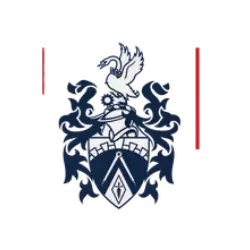
Key takeaways
- Creative writing degrees lead to publishing, editing, or freelance writing
- Develop storytelling, editing, and critique skills
- Portfolios crucial for career entry
So, you study creative writing, what do you plan to do with that? The dreaded question almost every student hates being asked but cannot ever seem to avoid well, at least for me. Telling a non-creative person that you study creative writing has always been an interesting experience. Either being welcomed with a gleeful smile, a clear expression of interest or an instant baffled look on their face at the idea of the subject, clearly laced with not-so-subtle hints of judgment.
However, all reactors usually have one thing in common, which is being massively misinformed on all the opportunities available post-graduation, believing you’re merely restricted to both the respectable roles of a writer (the average creative writing student’s dream) or an English teacher. In all honesty, I don’t blame them. Their assumptions are reasonable. It’s in the name. So, being a creative writing student myself, I have decided to answer the question your book-buried, literature-loving friends prefer to avoid- what kind of job can you get with a creative writing degree?
4 top jobs you can do with a creative writing degree
Besides obvious roles like creative writing teacher, here are 4 of the most popular jobs you could go into if you have a creative writing degree.
Journalist

Do you have a hobby, interest or cause you are extremely passionate about? If yes, then journalism might be for you. From sports, politics to even pop culture (widely known as entertainment journalism), the possibilities in journalism are endless. For anyone unfamiliar with what exactly a journalist is, the role of a journalist is to investigate, uncover and deliver news to the public. This news can be delivered through a range of different mediums, such as television, newspapers, magazines or through a company’s website. Journalism also offers a range of roles as well as fields of interest to work in, with examples being an editor, photojournalist, correspondent or a reporter.
Where do journalists work?
The work setting of a journalist can vary depending on the company the journalist works for and their exact role. The ‘standard journalist’ can expect to work in a newsroom if they happen to work for a newspaper or magazine in order to work closely with producers, editors and reporters to tackle news stories and current events. With the gradual increase in popularity of many opting to consume media online, digital journalists can expect to either work remotely or in other informal settings, working with colleagues remotely and freelance writers/contributors to create content across a range of digital news platforms, including company sites, podcasts and blogs.
Journalists can also find themselves working in the field if their job requires them to report breaking news or cover current events, whether that means travelling around the city, outside of it or abroad. Typically, investigative journalists or photojournalists would find themselves travelling to bring forth content to readers/viewers, but this also applies to sports and entertainment journalists, in some cases covering popular live events ranging from major athletic events to award ceremonies.
Copywriter

Have you ever been told you happen to have a way with words and persuasion, then the role of a copywriter may be just right for you. Copywriters are tasked with producing eye-catching copy (written material) in order to help sell a company’s products and engage with their target audience. As a copywriter, you’ll have the responsibility to help define a brand’s identity, ensuring it is clear across all platforms. If done right, a copywriter can raise a brand’s profile, making it much more visible in the media and help it reach their target market.
As well as producing captivating copy, as part of the day-to-day tasks of a copywriter, you’ll be required to brainstorm with teams as well as create and produce concepts for both advertising and marketing campaigns. Copywriters typically work freelance but, in some cases, work for advertising agencies or are part of the marketing department of a company. Choosing to go down this career path can give you the opportunity to have your writing be featured on websites, social media, television/streaming platforms ads and so much more.
Book editor

Do you have a keen eye for detail? Are you constantly looking for new ways to improve your work? If the answer to both is yes, then you should definitely consider pursuing the career of a book editor post-graduation. Book editors are tasked with reading, reviewing and editing author manuscripts and assisting them throughout the course of their book cycle. When reviewing author manuscripts, book editors are tasked with finding errors by carrying out sense check, line edits and leaving notes on them for the writer to improve such as plot holes, choice of words, pacing and formatting.
A book editors’ main goal, aside from improving a writer’s manuscript, is to further their chances of being published and having a successful book in terms of both quality and sales. Book editors can either be freelance, working remotely on a contractual basis for aspiring/established authors, or they can opt to work for a publishing house.
Columnist

Are you good at giving advice? Known to provide gems of wisdom effortlessly. If so, then why not follow in the footsteps of the phenomenal writer Dolly Alderton and try your luck at being a columnist. You might’ve heard the term but are unfamiliar with the meaning, but in short, a columnist is someone that writes for a publication, typically a newspaper or magazine, offering their own personal commentary and opinions.
The role of a columnist is perfect for writers who prefer non-fiction writing and would rather write from a personal standpoint rather than remain unbiased. This can include taking on the role of an agony aunt dropping gems for readers in dire need of advice, deciding which fashion trends are here to stay, seeing if the latest food craze is worth the hype or writing compelling book reviews, convincing readers to get lost in between the pages of your new favourite book. Columnists can expect to have their work published on either a weekly or monthly basis and work either remotely or at their place of employment.
So which job to choose?
So there are four new job roles you’ve either learned of their existence from reading this or gained a better understanding. Four new job roles to suggest to your creative writer friends to avoid sounding clueless about the subject they love so very much. As for the creative writing students who simply hate the question because they don’t know what they want to do post-graduation, I truly do hope this piece has helped you form an idea of the avenue you wish to go down after your time at university. It’s also worth gaining experience in different forms of writing to see which you enjoy the most.
Not every creative writing student wishes to be a writer but may instead find themselves called to be a helping hand in the end product of a writer’s work being a book editor, going abroad as an investigative journalist uncovering and exposing corruption, not so subtly shaking tables with their welcomed opinion as a columnist or being a major asset to their favourite brand as a copywriter. Here’s more information on the careers available to those holding a creative writing degree.
If you’re looking for other inspiration for creative careers, here jobs you can get with an English Literature degree.
Authors
-
View all postsI’m currently a second year student studying creative writing. From poetry, short stories, novels and more I very much enjoy all things fiction and non-fiction. I hope you find my articles both informative and enjoyable to read while you're at uni, or thinking about uni!
-
Aminah is a dedicated content expert and writer at Unifresher, bringing a unique blend of creativity and precision to her work. Her passion for crafting engaging content is complemented by a love for travelling, cooking, and exploring languages. With years spent living in cultural hubs like Barcelona, Sicily, and Rome, Aminah has gained a wealth of experiences that enrich her perspective. Now based back in her hometown of Manchester, she continues to immerse herself in the city's vibrant atmosphere. An enthusiastic Manchester United supporter, Aminah also enjoys delving into psychology and true crime in her spare time.
View all posts






